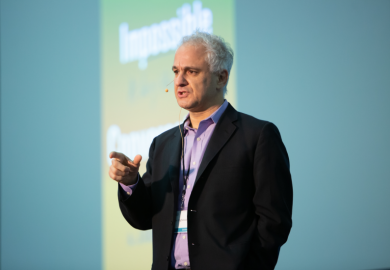These collections bear witness to the growing interest in philosophical issues concerned with religion. One of the introductions to the sections of William Lane Craig's collection points out that English-language philosophy spent much of the 20th century ignoring theology. Atheism appeared to rule. Yet, as the same writer points out: "In the past 20 years, the number of philosophers who are theists has increased dramatically." This is obvious in the US, but the philosophy of religion is also flourishing in Britain. One straw in the wind is the rising number of students wanting to study it at A and AS level, as well as the popularity of options in it in universities. There is a ready market for introductions to the subject.
One effective way of getting into the subject is to read some of the central writers of the past and present, helped by introductions to various themes. This is how Lane Craig has chosen to lead the reader of his collection through the discipline, although he does not reprint any work by historical figures. Instead, he concentrates on important papers from the past 20 years or so. His aim is to acquaint the student with "the very best cutting-edge work in analytic philosophy on key topics in the philosophy of religion". He provides us with an anthology divided into six sections (each with its own introduction). The topics include traditional issues such as natural theology, the problem of evil and the soul. The first section deals with religious epistemology, and the last significantly deals with philosophical examinations of central Christian doctrines, such as the Trinity and the Incarnation.
Philosophers no longer automatically treat such doctrines with indifference or contempt. Instead, the contributors to this volume are ready to subject them to sympathetic, if serious, rational examination. This acts as a superb survey of some of the best work being done in the philosophy of religion, and many of its central figures are included, although there is a pronounced American bias, with only a few British authors, such as Richard Swinburne. This may reflect the state of the subject, but is also no doubt partly because the general editor, and the other section editors, are themselves American.
The problem of evil is the subject of one of the sections. This is always going to figure in any rational examination of religion. Why a good, and omnipotent, God should allow so much evil in the world is an intellectual problem, but it is also a philosophical issue impinging on many people's lives. The question "why" will spring to many believers' lips in the midst of great suffering, and quite a few atheists will find themselves spontaneously asking the same question, even if they cannot think there could be an answer. William Rowe's collection of readings on this subject gathers together important texts, which show the ways in which both theists and atheists have approached the question. Like the other volume, they are in the idiom of what is sometimes called "analytic" philosophy of religion, and some of the same authors (including Swinburne) appear in both. Unlike the previous collection, this takes in Leibniz and Hume as well as contemporary writers. It gives a survey of some of the most influential treatments of the problem.
There is little overlap between these volumes and The Religious . It is true that John Milbank, one of the apostles of so-called "radical orthodoxy" writes on evil. He is, however, at odds with the idea of any rational examination of it, and claims that for the Christian tradition evil "is regarded as not even explicable in principle, not even explicable for God". He says that for theologians there never has been any "problem of evil". This is startling, and it is clear that the whole tenor of this volume is violently at odds with what some would call mainstream philosophy of religion, with its concern for reason and objective truth. The contributors are drawn from "continental philosophy", and there are selections from contemporary writers such as Derrida, and Luce Irigaray, as well as earlier figures, such as Kierkegaard and Heidegger.
Continental philosophy in this connection shows little resemblance to philosophy as taught on the Continent. At a recent French conference on the philosophy of religion, those attending were bewildered at the way a few contemporary French writers are taken up in some British and American universities when they are ignored in French philosophy departments. The distinction between analytic and continental philosophy is an ideological, not a geographical, one. They typically differ about the role of human reason, and the importance of lucid argument. It is no coincidence that, although the papers in the first two collections may be demanding, they are clear, while those in the third are often obscure and jargon filled. The latter agree that "metaphysic's God" or "the God of traditional philosophy of religion" is dead. The introduction arrogantly dismisses such a God as a philosopher's God, "to be found only on the pages of philosophy journals, not in the hearts of believers". It is far from clear, though, what is to be put in place of the traditional God. There is the suspicion that with the repudiation of philosophical reasoning, anything goes, whether it is atheism, feminism, radical orthodoxy or whatever. All are represented here. Although the collection is interesting in that it shows examples of postmodern thinking about religion, it is hardly an example of rationality at work.
Roger Trigg is professor of philosophy, University of Warwick.
The Religious. First edition
Editor - John Caputo
ISBN - 0 631 21168 3 and 21169 1
Publisher - Blackwell
Price - £55.00 and £16.99
Pages - 322
Register to continue
Why register?
- Registration is free and only takes a moment
- Once registered, you can read 3 articles a month
- Sign up for our newsletter
Subscribe
Or subscribe for unlimited access to:
- Unlimited access to news, views, insights & reviews
- Digital editions
- Digital access to THE’s university and college rankings analysis
Already registered or a current subscriber? Login



